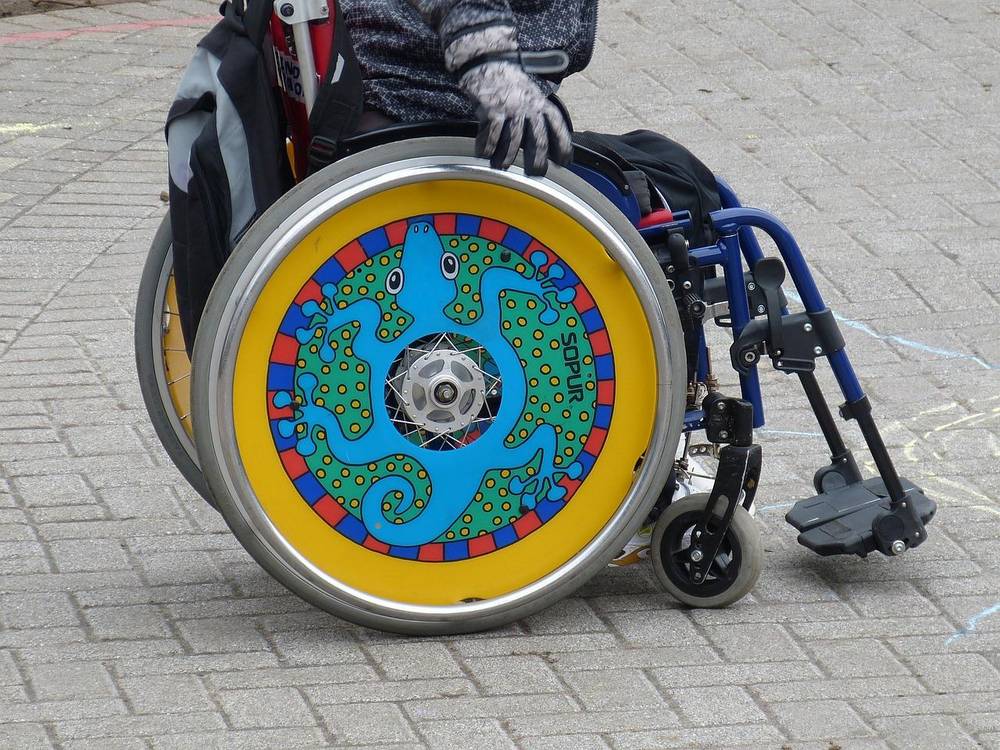The Ombudsman discussed the issue of payment of travel expenses to a person who is included in a training, work and care centre. The fact that two persons, with all other relevant circumstances being equal, are involved with the service provider on different legal grounds, should not be the reason for the difference in their material situation, as this would not be consistent with the provisions of Article 14 of the Constitution in conjunction with the provisions of Articles 50, 52 and 56 of the Constitution. The Ministry of Solidary-Based Future has announced that it will approach the amendment of the legislation and will resolve the matter appropriately in the shortest possible time, which the Ombudsman welcomes.
* * *
The Ombudsman of the Republic of Slovenia (the Ombudsman) was informed by the Institute of Education of the Republic of Slovenia (ZRSŠ) about the issue of payment of travel expenses to a person who is included in a training, work and care centre.
The Ministry of Solidary-Based Future (MSP) has announced that the Rulebook on Standards and Norms of Social Welfare Services (Rulebook) states that transportation costs for daily arrivals and departures are financed for persons who are included in day care at the training centre. Transportation costs for persons who are included in the service provider's round-the-clock care (which also applies in the specific case) are not included in the service and consequently are not financed. Pupils who are targeted for full-day care have the right to accommodation in the training centre every day of the year, including weekends and holidays (unlike educational institutions). Transport financing is not even defined in the Social Assistance Act (ZSV). The Ministry of Education and Training (MVI) believes that there is no legal basis in its legislation for financing the costs of transportation for students who are directed to a social welfare institution and are under the responsibility of the MSP. According to them, social welfare institutions are only registered in the register for the implementation of a special program of education and training, and there is no legal basis in the Organisation and Financing of Education Act (ZOFVI) for the financing of the relevant transport costs.
The ZRSŠ insisted on the position that a child is entitled to free transport during classes on days off, regardless of which institution they are sent to. It cites the Act on the Placement of Children with Special Needs (ZUOPP-1) and the Basic School Act (ZOsn) as fundamental and key regulations that ensure equal treatment and scope of rights.
The MSP has announced that it will approach the amendment of the legislation in such a way as to ensure the realisation of the greatest benefits of vulnerable groups of society, special care for children and especially their equal treatment in the Social Assistance Act, which is currently in the process of being amended. Funding of transportation costs during classes on days off will also be provided for users who are included in the Special Education Programme and in all-day institutional care.
The Ombudsman welcomes the decision of the MSP that the case will be properly resolved in the shortest possible time. At the same time, he emphasises that, despite the possible ambiguities as to who should be providing the funds for transport, the correct position of the ZRSŠ is that the right to free transport on school days off must be equally shared by children who are directed to a special education programme and have the right to care specified in the decision should be included in institutions for the upbringing and education of children with special needs or in social welfare institutions.
Regarding other issues, the Ombudsman has already pointed out the inadmissibility of different positions of persons simply on the basis that individuals who are otherwise in a completely comparable position both in terms of their needs as well as in terms of the services provided to them, are included in schools or social welfare institutions. The Ombudsman accepts explanations that, based on different legislation, there are separate systems of services in the public network (school and social welfare), and the specifics of both areas and the purpose of individual rights must be taken into account. At the same time, the Ombudsman expressed his belief that the request for equal treatment of equal situations will not be overlooked when solving the issues, since the mere fact that one of the children is included in the service provider on a different legal basis than the other child, namely with all other relevant circumstances being the same, cannot justify the significant differences in the material situation of the two children. According to the Ombudsman, this would not be consistent with the provisions of Article 14 of the Constitution of the Republic of Slovenia, in conjunction with the provisions of Articles 50, 52 and 56 of the Constitution. In accordance with the provisions of Article 14 of the Constitution, equals must be treated equally and those who are unequal differently.
The European Court of Human Rights (ECtHR) has also developed a standard formulation for the demarcation between unjustified and justified discrimination, which is generally applicable to all cases of discrimination under Article 14 of the Constitution. Defining the ECtHR contains two key requirements. A distinction that is acceptable must meet two conditions: (a) the distinction must be real and reasonably justified or pursue a legitimate purpose and (b) there must be a reasonable proportional relationship between the purpose and the means used to achieve the purpose. The test applies to all forms of discrimination and in all circumstances.
The Ombudsman expects that, as guaranteed, the question in question will actually be resolved in the shortest possible time with appropriate legal solutions. 21.4-10/2023

![[Translate to English:] Otrok na invalidskem vozičku](/fileadmin/_processed_/7/9/csm_with-special-needs-728522_1280_8ccb365df5.jpg)
